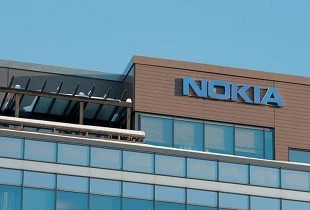Automating processes to drive operational excellence in 2021
Twitter senior program manager Andrae Kirkland explains how automating processes helps organizations deliver increased operational efficiency and align with customer values
Add bookmark
Ahead of his presentation on his experience deploying intelligent automation technologies at Twitter, Nike, and Anheuser-Busch InBev at PEX Live: IA and RPA 2021, PEX Network caught up with senior program manager Andrae Kirkland. The Lean Six Sigma Black Belt discussed the need for businesses to first evaluate end-to-end processes and his recommendations for integrating intelligent automation technologies.

During his time at Anheuser-Busch InBev, Kirkland led several robotic process automation (RPA) projects within supply chain operations. He also led the development and deployment of a machine learning (ML) algorithm within supply chain operations to increase forecast accuracy using the predictive capabilities of artificial intelligence (AI).
At Nike, he deployed an automated quality management platform across the supply chain network to monitor shipment performance. This earned him Nike's highly regarded "Just Do It" award within the North America Supply Chain, which for someone who grew up in sports, “was extremely special and an unforgettable experience”.
PEX Network: In your opinion, why do businesses need to automate in 2021, if they have not done so already?
Andrae Kirkland: I can see several different reasons as to why businesses should prioritize automation, but they are all underscored by an overall theme of maintaining a competitive advantage. Automation can help increase margins by decreasing operational costs through the efficiencies it grants you, or help you gain more access to customers and increase consumer sentiment through, for example, reduced environmental impact as a result of operational efficiency.
We have seen within the consumer population over the past few years that customers gravitate more toward purpose-driven brands. This includes building smarter supply chains to decrease CO2 emissions, or becoming very transparent on how the business operates and how consumer data is used. I only see this growing in importance over the next few years.
In 2021, we are at a point where technology is as fast and as strong as it has ever been. We have much more data than ever before and the processing power is simply incredible. This is the perfect storm to justify prioritizing automation.
PEX Network: What would be your recommendations for companies to best integrate intelligent automation technologies?
AK: My biggest, resounding recommendation is to start with the process, not with the technology. There is a quote from Bill Gates that I love and agree with: “The first rule of any technology used in a business is that automation applied to an efficient operation will magnify the efficiency. The second is that automation applied to an inefficient operation will magnify the inefficiency.”
I always use the analogy of a kid getting a shiny new toy they want to play with immediately. Sometimes, however, it is not about the shiny new piece of technology, it is about understanding where we are right now, what problems we are facing and trying to overcome, and how we separate the symptoms from the root cause. Then, understanding what the end-to-end process is that acts as an input to those symptoms and root causes.
We can get so bogged down into the problem we are looking to solve within a specific point in the process that we forget to come back up, take a breath of fresh air and look at the full end-to-end view of the process. Once we have that broad view, then we can start pinpointing different areas of opportunity and see where we can improve that process by introducing technology and build toward an optimized future state.
Sometimes it is a non-tech solution that will be implemented, such as the optimization of process steps through Lean Six Sigma 5S methodologies or by making better use of the data we have available. For instance, when the data is not clean, it can create a complete mess downstream and cause havoc in the system. Although it can be regarded as a form of technology, from my standpoint, ensuring the cleanliness of the data to ease pain downstream is more of a process solution.
PEX Network: What developments do you see happen in the RPA and intelligent automation space over the next few years?
AK: Across both RPA and intelligent automation, I believe that as technology continues to improve, we will see more of a mature widespread adoption across processes in a plethora of industries.
A couple of years ago, in order to find a transformation opportunity, organizations needed to have process experts or Lean Six Sigma professionals manually review processes to discover transformation opportunities. Now, we have process discovery and process mining tools to do that. Also, while people were needed to manually develop or write the code required for automation, now, low-code solutions can help organizations deploy transformations.
With any new technology, in its early stages it is going to be expensive, present a high risk and represent a big investment in terms of time, people and money. As these technologies continue to mature and project teams continue to prove out use cases, the risk will decrease, along with the financial and people investment, thus driving widespread adoption.
PEX Network: What can attendees expect from your presentation at PEX Live: IA and RPA 2021?
AK: I do not come from a traditional tech background and I am not a computer or data scientist. I do bring an engineering mind-set and skillset, however, where I am able to look at a problem and understand the business impact and need for innovative solutions. I understand the technologies and their capabilities, thereby able to marry them to the business needs of an organization.
Because of this, attendees can expect to see tangible strategies they can use too if they do not feel as though they are tech experts. They can still drive tech transformations by simply understanding the capability of a technology and coupling it with solution requirements to overcome business challenges.
Click here to register to PEX Live: IA and RPA 2021 to meet Kirkland and ask him questions in real time.
You can also follow Kirkland on Twitter here.




























